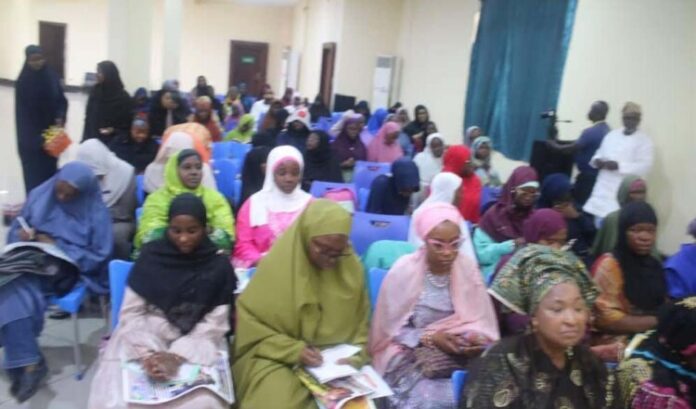Lagos — It was an atmosphere of spiritual enlightenment and intellectual engagement as Islamic scholars, legal and financial experts, and members of the Muslim community, gathered at the Vice Admiral Jubrila Ayinla Multipurpose Hall at the Lekki Central Mosque Complex, where the Lekki Muslim Ummah (LEMU) held its quarterly Da’wah workshop, last Sunday.
Themed “Sharia-compliant Trust and Inheritance Planning: A Necessity for Muslims,” the event was graced by the presence of distinguished speakers, with Mr. Lateef Omoyemi Akangbe, SAN, serving as the chairman of the event, setting the tone with insightful remarks on legal perspectives.
The workshop was a vital forum aimed at promoting awareness about the religious, moral, and legal imperatives of estate planning as rooted in Islamic teachings.
A call to recognize estate planning as a religious duty
The event’s keynote address was delivered by the Chief Imam of Lekki Central Mosque, Sheikh Ridwan Jamiu, who delivered a compelling paper titled “Shari’ah-Compliant Trust and Inheritance Planning: A Necessity for Muslims.” Sheikh Jamiu emphasized that estate planning is not simply a legal formality but a crucial religious obligation.
“Planning for one’s death is a clear Islamic injunction,” Sheikh Jamiu asserted passionately. “It’s a moral and religious duty we must all take seriously. Prophet Muhammad (SAW) explicitly instructed that no Muslim with assets should sleep two nights without writing a will.” He recounted a poignant example of the sudden death of a medical doctor en route to Sokoto, underscoring life’s unpredictability.
Sheikh Jamiu lamented the alarming trend of wealthy Muslims dying without proper documentation, stating, “Some of us are billionaires, and yet, nobody knows because nothing has been documented. You should not pass two nights without a written will.”
He drew attention to Qur’anic injunctions emphasizing fairness and divine justice, stating, “The shares are fixed. You cannot change them. If you tamper with Allah’s allotment, the punishment is severe.” He elaborated on practical tools for Islamic estate planning such as wasiyyah (will writing), hibah (lifetime gifts), waqf (endowments), and takaful (Islamic insurance), cautioning that not all banking or insurance products labeled Islamic are genuinely compliant unless verified.
“Succession planning begins with our children,” Sheikh Jamiu added. “What are they learning? What future are we preparing for them? The best legacy you can leave for humanity is righteous children.” He ended with heartfelt prayers for the families present.
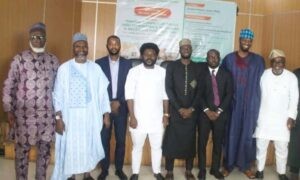
Mr Lateef Akangbe, SAN, Chairman of the Occasion and Alhaji AbdulFatai Olajide, Secretary, Da’wah Committee, LEMU during LEMU Quarterly Da’wah workshop themed ‘ Sharia-Compliant Trust and Inheritance Planning: A necessity for Muslims’ held at Lekki Central Mosque, Lekki, Lagos on Sunday
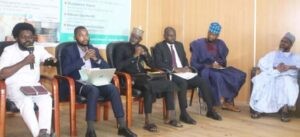
Legal insights on Trusts and Asset Management
Following this, the event’s chairman, Mr. Lateef Omoyemi Akangbe, SAN, offered a seasoned legal perspective. “Let me tell you how I view trusts,” he began. “Setting up a trust is far more effective than distributing assets through a will.”
He shared his personal experience with legal battles over wills, observing, “The more wealth at stake, the higher the likelihood of dispute. Trusts offer a smoother alternative to estate distribution, minimizing conflicts.” Akangbe praised the initiative, emphasizing the importance of understanding both Islamic and civil legal frameworks in succession planning.
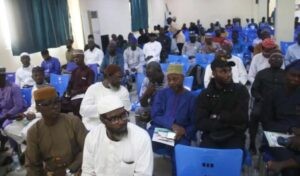
Panelists’ submission
Dr. Ridwan Oguntade, Lead Halal Investment Advisor at AVA Trustees Ltd., opined that a Muslim can include non-heirs in his wil. “Yes, you can include non-heirs in your will. Islam allows you to do that, giving you the power of generosity beyond the fixed shares.”
He added that trusts can be personalized to include loved ones and others, depending on individual objectives.
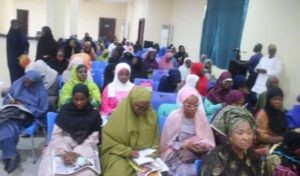
Adeseewo Agunbiade, Islamic Estate Planning Advisor at UTL Trust Management Services Ltd., explained that the choice between waqf and hibah hinges on purpose. “Waqf is perpetual—designed to last forever—while hibah is a lifetime gift,” he said, emphasizing the importance of aligning the estate plan with specific goals.
Addressing concerns about reliance on trusts versus Prophet Muhammad’s (SAW) advice on wills, Mustakeem Thanni of Marble Capital clarified, “The Prophet (SAW) said we should not sleep two nights without writing a will, but trusts and wills should complement each other—both are essential tools for sound estate planning.”

